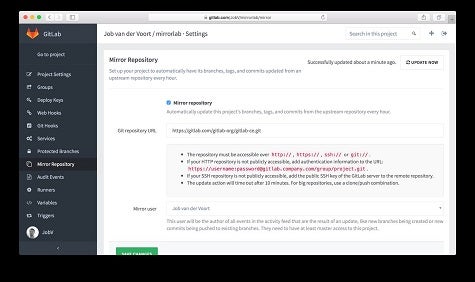Conventional wisdom currently holds that application development has moved into the realm of the public cloud where IT resources are both inexpensive and readily accessible. In reality, a lot of the development work being done in the enterprise is on a private cloud, largely because many of those applications are critical to the business. Rather than take a chance that those applications might be discovered on a public cloud, organizations are replicating all the benefits of a public cloud in a more private setting.
One of those public services that resonates most with developers is clearly GitHub, which provides a mechanism through which developers can share code and more easily collaborate with one another. To address that issue in the context of the enterprise, GitLab enables IT organizations to download GitLab Enterprise Edition to a private cloud or invoke as a software-as-a-service (SaaS) application. The latest release of GitLab Enterprise Editions now adds support for fine-grained control of permissions and LDAP authentication and, in the interest of full transparency, GitLab has also published its forthcoming feature update schedule.
GitLab CEO and Co-Founder Sytse Sijbrandij says the thing that differentiates GitLab most from other approaches to DevOps is that support for continuous integration (CI) is built into the core offering. In contrast, many organizations that use the open source GitHub platform find themselves stitching a workflow together across GitHub and third-party CI frameworks such as Jenkins.
Sijbrandij says that over 100,000 organizations are already using GitLab to create a repository through which developers can securely share application code. Going forward, Sijbrandij says, he expects to see more sharing of code occurring among organizations spanning the globe that increasingly need to collaboratively develop applications.
While many developers may experiment with concepts in a public cloud setting, the development of almost any application that is crucial to the business winds up being managed in a fashion that ensures quality control in a way that requires, for example, knowing the provenance of every piece of code that makes up the application. For that reason, many organizations are already treating GitLab as an enterprise extension of GitHub.




